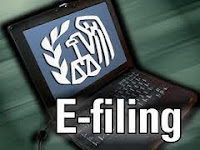Tax Relief for Truckers

For owner-operators, the beginning of a new year is more than a time to celebrate. It’s a time to start thinking about taxes. Even though the IRS says you don’t have to complete them until the April deadline, now’s the time to take action. Doing so can save you money—and also prevent headaches later on. Trucker tax relief: Make tax deductions a top priority while what can and can’t be counted as legitimate business expenses can be difficult to discern, here are some common deductions available to truckers who own and operate their own vehicle: • Fuel. Typically a driver’s largest expense, fuel can also be your largest deduction, sometimes resulting in thousands of dollars in tax savings each year. • Tolls and other fees. Road and bridge tolls you are required to pay along your routes are tax deductible, as are scale fees, licensing fees, parking and other expenses required to operate. However, you can’t deduct traffic tickets or any...




